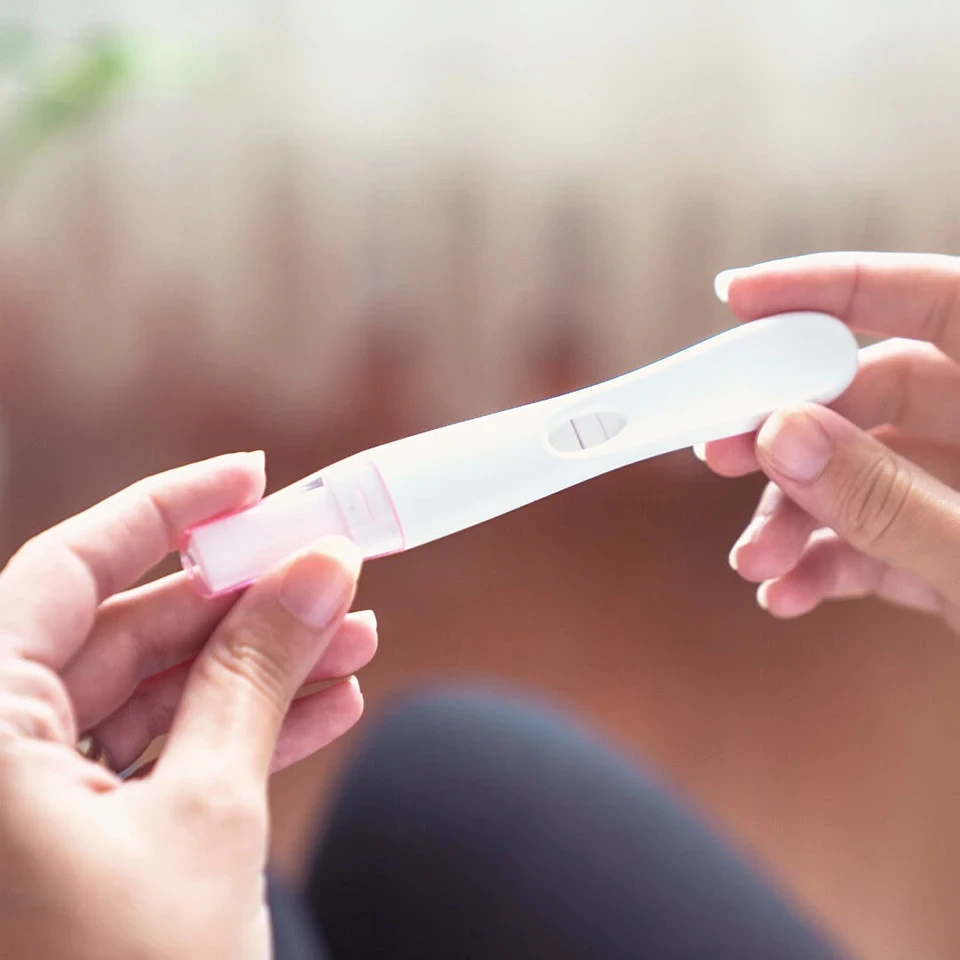Pregnancy Test Very Faint Line : What Does It Mean?
A very faint line on a pregnancy test means that there are hormones of pregnancy rising in your body. It is very likely that you are pregnant. It is important to look at the urine pregnancy test and make sure that the control line is also appearing. If the control line does not appear, you should take another test, because it means that the pregnancy test is not valid.
Pregnancy HCG Levels
If you have a positive urine pregnancy test (a pregnancy test with a very faint line), it is likely that you are pregnant. If you take a second pregnancy test and the positive line is more intense than the faint line on the initial test, this could be an indicator that hCG levels in your body are rising.
Human chorionic gonadotropin, or hCG, is a hormone produced by the placenta when you are pregnant. The hCG hormone is made once the embryo (the egg that has been fertilized by sperm) attaches to the wall of the uterus. In a person with a 28-day menstrual cycle, hCG can be detected in the urine as early as 12 days after ovulation, and the window for early detection of a pregnancy is approximately 12 to 15 days after ovulation.
For the most reliable results, test 7 to 14 days after you miss your period. Ideally you should use the first morning urine for the urine pregnancy test. If you are pregnant, it will have more hCG in it than later urines. If you think you are pregnant, but your first test was negative, you can take the test again after a few days. The amount of hCG increases quickly when you are pregnant, so it is more likely to have a positive test 1 to 3 days later.
There are some people who have circulating antibodies in their body that interact with the hCG antibody. The most common of these are called heterophilic antibodies. People who may be more likely to have this interaction and have these antibodies are those who have worked as animal laboratory technicians, have spent time in veterinary facilities, or people who were raised on farms. The presence of these antibodies can interfere with pregnancy test results, but the vast majority of people do not have these antibodies.
Fertilization And Implantation Symptoms
The pregnancy test can only have a positive result once your body starts to produce a hormone HCG, which stands for human chorionic gonadotropin. Fertilization takes place in the fallopian tube, and it is the joining of an egg with a sperm into a single cell. This single cell then divides into multiple cells while it moves from the fallopian tube to the uterus. Around day 6 to day 10 after conception, the cluster of cells implants into the uterine wall and is called an embryo.
During implantation, you may have some cramping and even some mild bleeding. This bleeding can occur for a few days or even up to a week. Significant bleeding is not typical for implantation bleeding.
Pregnancy Test Very Faint Line: Take Home Points
If you have a pregnancy test that you think is positive, the best thing to do is to schedule an appointment with your doctor to have a blood test done. The blood test can provide more specific data on the stage of your pregnancy and it is also something that the doctor will want to monitor. Blood levels of HCG that do not rise as expected could be a sign that something may be wrong.
Related: Heavy Implantation Bleeding: Pregnancy Or Period?
Sources:
Cole LA, Rinne KM, Shahabi S, Omrani A. False-positive hCG assay results leading to unnecessary surgery and chemotherapy and needless occurrences of diabetes and coma. Clin Chem 1999;45:313 – 4.
https://pubmed.ncbi.nlm.nih.gov/9931066/
Rotmensch S, Cole LA. False diagnosis and needless therapy of presumed malignant disease in women with false-positive human chorionic gonadotropin concentrations. Lancet 2000;355:712–5.
https://pubmed.ncbi.nlm.nih.gov/10703803/
Check JH, Nowroozi K, Chase JS, Lauer C, Elkins B, Wu CH. False-positive human chorionic gonadotropin levels caused by a heterophile antibody with the immunoradiometric assay. Am J Obstet Gynecol 1988;158:99–100.
https://pubmed.ncbi.nlm.nih.gov/2447778/
https://www.fda.gov/medical-devices/home-use-tests/pregnancy
We discuss products we think are useful to people. If you buy something through our links, we may earn a commission. Remember to check with your personal physician to see if a product recommended is right for you.








